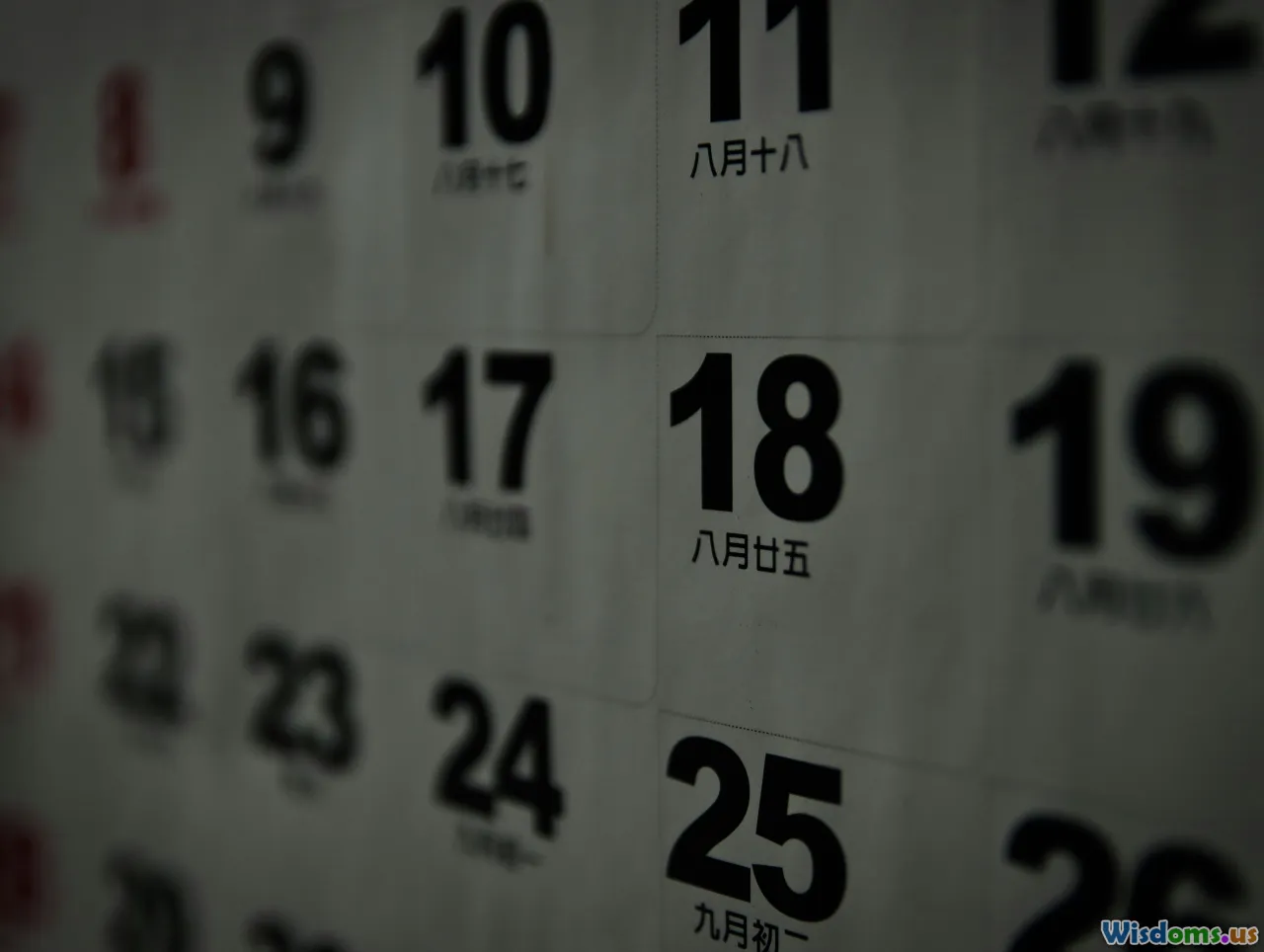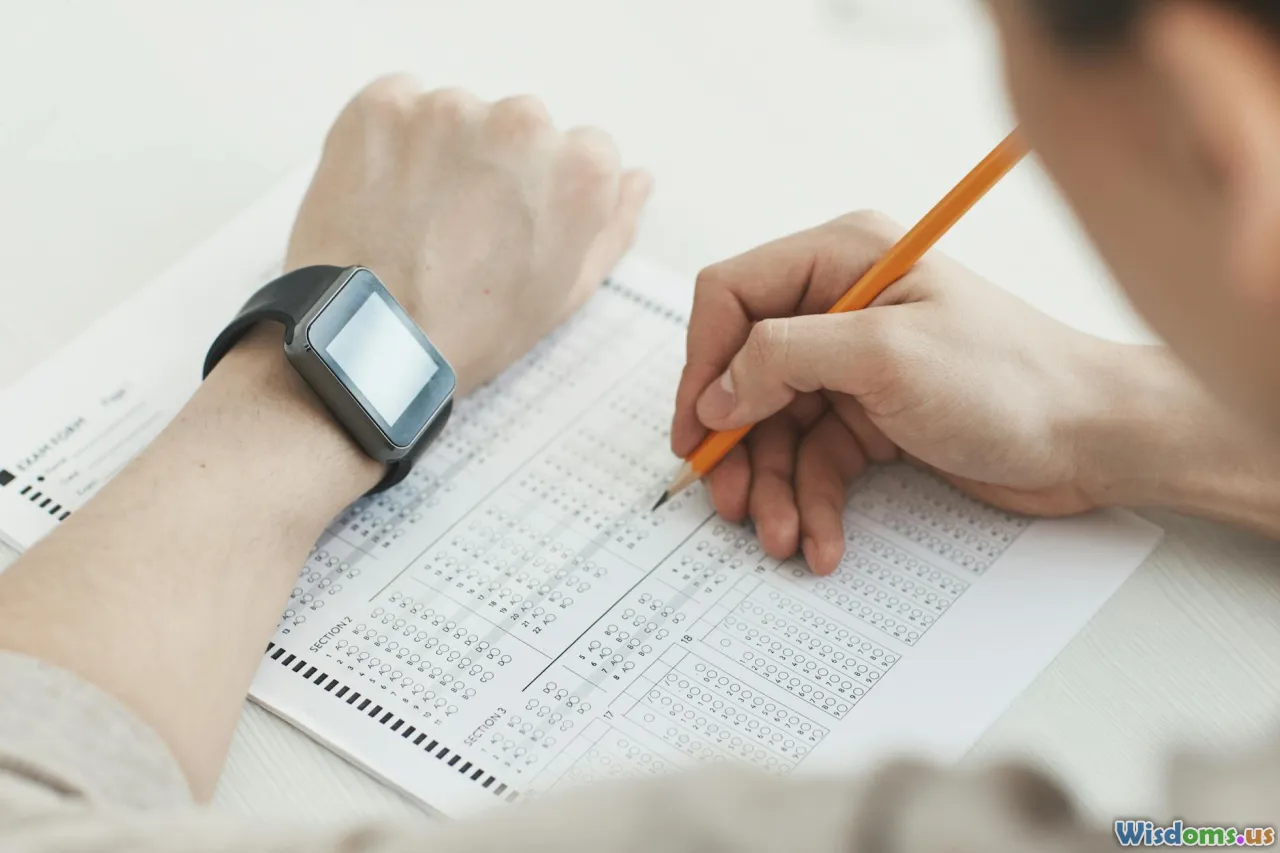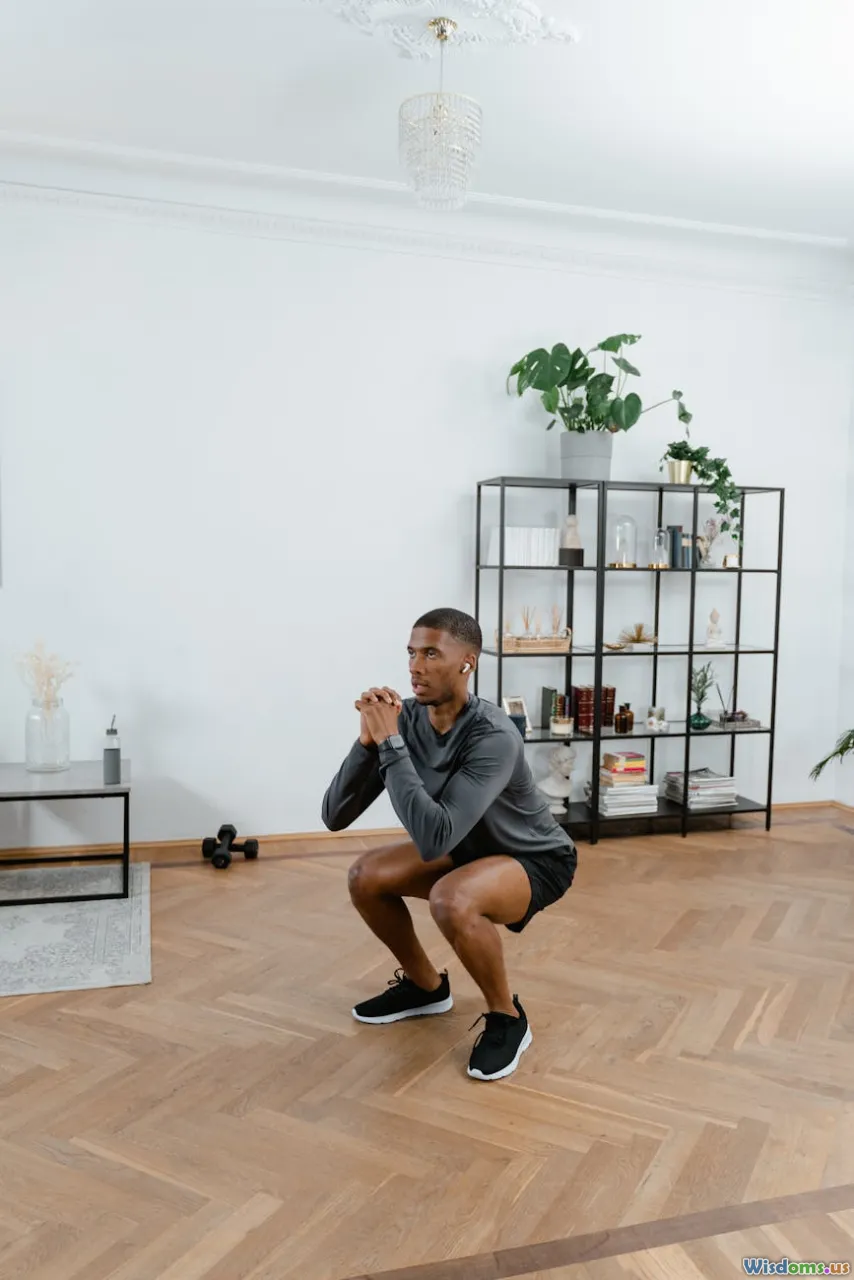
How I Stayed Focused and Doubled My Test Scores
14 min read Discover effective strategies I used to maintain focus and dramatically increase my test scores, including practical tips and real-life study routines. (0 Reviews)
How I Stayed Focused and Doubled My Test Scores
For years, I was the perennial "almost-there." My test scores hovered around average, no matter how hard I believed I was studying. Distractions, stress, and self-doubt were regular companions. What turned things around wasn’t a secret formula or shortcut; it was a steady transformation of my habits, environment, and mindset. This is the story of how I learned to focus, outsmart distractions, and ultimately double my test scores, with actionable strategies you can use too.
Breaking the Cycle: Identifying Distractions

When I first analyzed my study habits, the culprit behind my plateau was clear: distractions ran rampant. My phone buzzed, my computer tempted me with endless tabs, and even the window outside seemed to beckon. Instead of focusing, I spent hours in a haze of multitasking and fragmented attention. It was time to break the cycle.
Concrete Actions:
- App Audits: I began by enabling Screen Time tracking on my phone. The reality was shocking: I averaged nearly three hours a day on social media during study weeks. I deleted the worst offenders—Instagram, Twitter, TikTok—off my main devices and installed focus-oriented extensions like Freedom and StayFocusd on my browser.
- Physical Workspace Control: My study desk became sacred ground. I moved it away from windows, cleared surface clutter, and invested in good lighting—backed by studies that highlight the role of tidy, well-lit environments in concentration and academic performance.[^1]
Example in Action: On the first weekend after purging distractions, I finished a chapter in 40 minutes versus my previous 90. I realized much of my time hadn’t been spent actively studying—but wrestling against interruption.
Designing a Structure: Time Management and Scheduling

Without a clear structure, even the most focused intentions wither. I used to prep for exams only when a looming deadline forced me into panic mode. The move towards deliberate scheduling felt revolutionary.
Step-by-Step Routine:
- Weekly Planner: Every Sunday evening, I mapped out my week—allocating 30-minute blocks for reading, practice problems, and review. Why 30 minutes? Research shows concentration dips after 25–50 minutes of focused activity.[^2] Short bursts, followed by deliberate breaks, optimize cognitive function.
- The Pomodoro Technique: I adopted the Pomodoro method—25 minutes of work, 5 minutes of break. During breaks, I’d stretch or leave the room to prevent burnout. I tracked cycles with tomato-shaped timers, which proved oddly dramatic and motivating.
- Accountability Buddy: I partnered with a classmate for weekly check-ins. We’d meet briefly on Fridays to compare notes, deadlines, and progress. The subtle pressure propelled me to stick with my plan and avoid slacking.
Concrete Example: When prepping for a calculus midterm, this structured approach helped me cover all twelve textbook chapters systematically—instead of haplessly skimming them two nights before the test like I used to.
Focus Tools and Mindset Shifts That Worked

Even with scheduling and minimized distractions, my mind would still wander. I tackled this with a blend of tech and self-awareness.
Technology That Boosted Productivity
- Noise-Cancelling Headphones: Blocking environmental noise with lo-fi playlists or white noise increased concentration, especially in busy study spaces or at home when my siblings were around.
- Study Apps: Apps like Forest, which gamify focus time by letting you 'grow' a virtual tree for every uninterrupted work period, made staying on task rewarding. Tracking daily focus streaks felt as satisfying as leveling up in a game.
- Digital Mind Maps: Before starting a study session, I spent five minutes outlining concepts in a mind-mapping app (e.g., XMind or MindMeister). This gave my lessons structure, helped me see links, and banished the dread of "where the hell do I even start?"
Mindset Adjustments
- Mindful Awareness: I practiced acknowledging distractions rather than fighting them. Brief mindfulness exercises (like Headspace’s 1-minute breathing meditations) reset my attention between sessions.
- Growth v. Fixed Mindset: Embracing Carol Dweck’s principle that intelligence can be developed, not just measured. Progress became the goal, not perfection. Each failed quiz or tough session felt less like proof of incapability and more of a signal to adapt.
Real-Life Refresh: Instead of beating myself up for lost time or off days, I’d simply re-engage my strategy—knowing my brain, like a muscle, would get stronger with practice.
Customizing Learning: Techniques That Doubled Retention

I discovered that how I learned was as important as what I learned. Doubling my test scores required a shift from passive to active engagement.
Active Recall Over Passive Reading
Highlighting passages and skimming notes had always felt reassuring—but was it effective? For a statistics exam, I put myself to the test. I did all practice problems before checking the solutions. My initial accuracy was under 50%, but after reviewing errors and retrying, my recall doubled. The research backs it up: actively retrieving information (versus rereading) increases retention and test performance by up to 50%.[^3]
Spaced Repetition: From Last-Minute to Long-Term Mastery
Tools like Anki flashcards harness spacing effects. Inputting both simple facts and complex concepts (e.g., 'Banach–Tarski paradox explanation’), I found that reviewing bite-sized chunks daily meant nothing was forgotten—and time spent cramming was cut in half.
Feynman Technique: Teaching to Learn
I picked a rubber duck as my “student” and tried teaching tricky topics aloud in simple language. If I got stuck, I’d consult my notes, clarify points, and try again until the explanation was seamless. This method forced a deeper understanding and highlighted gaps I would otherwise miss.
Personal Result: With these techniques, my organic chemistry score jumped from 68 to 91 in a single semester—a source of immense pride (and relief).
Brain and Body: Lifestyle Tweaks for Cognitive Edge

You can’t out-study poor lifestyle decisions. My breakthrough came when I stopped thinking of studying as just a mental game and started optimizing my body as well.
The Sleep Revolution
A 2019 MIT study found students performed significantly better on tests after just one extra hour of sleep per night for a week.[^4] I began enforcing lights-out by 11 p.m., used blue-light filters on devices, and said goodbye to all-nighters—the worst cognitive saboteurs.
Move to Learn
30-minute walks became non-negotiable. Exercise releases BDNF (brain-derived neurotrophic factor), which fuels learning and memory. During peak exam stress, even short stretching or yoga video breaks kept my brain refreshed.
Brain Nutrition
I swapped junk snacks for nuts, fruits, water, and the occasional green tea. When I tracked my energy and focus, there was a clear uptick in the three-hour window after these "brain foods"—echoing nutrition science consensus.[^5]
Quick Tip: Dehydration is linked to reduced focus—always keep water within reach and track intake during sessions.
Testing Smarter: Exam Tactics That Paid Off

Cramming is a high-stakes scramble that leaves retention and understanding behind. Upgrading my exam approach fundamentally changed my windows of recall win.
Practice Under Pressure
Doing past papers in full timed conditions made a stark difference. It trained me to manage time, triage tough questions, and resist the lure to fixate. Simulating test-day stress before the real event meant the actual exams felt less daunting.
Mistake Logbook
Instead of discarding graded tests, I created a mistake log—cataloging missteps, misconceptions, and typical carelessness (like forgetting units or misreading instructions). Reviewing this list before each exam meant fewer repeated blunders and greater confidence.
Managing Exam Nerves
I arrived early, followed a pre-test breathing routine, and banished comparison with others. Visualization helped: imagining my ideal performance in the exam hall, I walked in motivated and calm.
Result: Across three subjects—biology, calculus, and history—exam averages jumped by 30 to 45 points.
Sustaining Momentum: Building Resilience and Avoiding Burnout

It’s easy to start strong and plateau—or worse, burn out entirely. Doubling my test scores was a marathon, not a sprint, and sustaining effort required some deliberate tactics.
Celebrate Small Wins
Whenever I finished a major set of flashcards or aced a pop quiz, I rewarded myself with a favorite snack, a short video, or a night out with friends. These micro-rewards made study marathons more sustainable and positive.
Reflection and Adaptation
Every month, I’d spend 10–15 minutes reflecting: What worked? Where did I slip? I adjusted my plan frequently, swapping inefficient methods for ones that delivered results.
Keeping Perspective
Test scores matter, but one grade never defines the whole story. I regularly reminded myself that the real goal was mastery and growth.
Final Personal Note: Despite setbacks—a failed quiz, family emergencies, motivation dips—the overall arc kept rising. Resilience, not perfection, was my real achievement.
Transforming my academic performance was no overnight phenomenon. It was the result of hundreds of small, sometimes unglamorous choices, strung together with discipline and a belief in progress. If you’re struggling to stay focused or frustrated by stagnant results, know that change is possible—with measured routines, smart tactics, and a proactive approach to distractions. Above all, focus is a trainable skill, not a fixed trait. Every thoughtful adjustment is one step closer to your own breakthrough.
[^1]: Vischer, J.C. (2007). The Effects of the Physical Environment on Job Performance: Towards a Theoretical Model of Workspace Stress. Stress and Health. [^2]: Karr, J. E., Areshenkoff, C. N., & Garcia-Barrera, M. A. (2019). The Temporal Dynamics of Sustained Attention in the Classroom: Beyond the First 10 Minutes. Educational Psychology Review. [^3]: Roediger, H. L., & Karpicke, J. D. (2006). Test-Enhanced Learning: Taking Memory Tests Improves Long-Term Retention. Psychological Science. [^4]: MIT News, "Sleep boosts exam performance," https://news.mit.edu/2019/sleep-exam-performance-0424 [^5]: Gómez-Pinilla, F. (2008). Brain foods: the effects of nutrients on brain function. Nature Reviews Neuroscience.
Rate the Post
User Reviews
Other posts in Learning Motivation & Goal Setting
Popular Posts

















